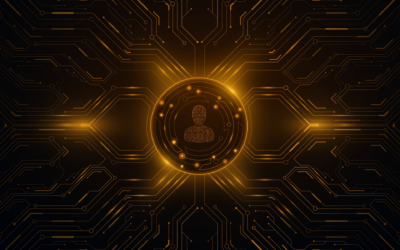Information, the entirety of human health-orientated knowledge in fact, is available to anyone who cares to find it. However, with such an abundancy of information at our fingertips, new challenges arise. How do patients or healthcare professionals retrieve the necessary knowledge that they are looking for, and how do we handle all of this unstructured healthcare data?
Put simply, the more effort we put into organising and structuring data, the less effort is required to access it. So either contribution to the knowledge base is limited, because specific formats and structures need to be adhered to, or the data is too chaotic to efficiently navigate. This where Natural Language Processing (NLP) can come to the rescue. NLP tools can be applied in both organising unstructured data spaces, and efficiently navigating them. Easier contribution and access leads to data democratisation. But how is this achieved?
Patients are on the receiving end of this information retrieval (IR) problem. NLP allows them to navigate across many sources, structures and formats, by using natural language to retrieve the information they need for their treatment. The available data is labelled and organised in categories and topics, through tasks such as Topic Modelling, Text Classification and Named Entity Recognition. These representations of the data are then easier to query by the patients, who can use natural language keywords to get to what they are looking for. The large language models enabling this, have a lot of contextual and pragmatic knowledge about language, and enable fuzzy search, so the patients do not need to explicitly search for the information they are looking for.
While healthcare professionals benefit from the same efficiency in IR through NLP as patients do, they can use the same tools to both structure their data, but also aid them in their provision of treatments. NLP tools can not only be applied to query available information, but also to accumulate knowledge and present all of the relevant information on a specific domain using Topic Modelling or Text Summarisation. All this gathered knowledge would take a huge amount of time for a person to collect manually. However, through NLP, the data can almost instantly be provided with all the important elements summarised, for the specialist to consider when making their decisions.
Besides using existing technologies to solve important problems, the problems themselves can sometimes dictate how these technologies evolve. In the case of NLP, the constantly evolving nature of the healthcare domain, poses the need for continually-learning machine learning (ML) algorithms. ML algorithms have increasingly task-specific uses, with little to no ability to adapt to similar or new tasks efficiently.
Take for example a text classifier, classifying patients and professionals talking online. It would take a lot of data to train the classifier to perform this task. If you were to ask it to classify which of those patients are taking medications and which are not, a piece of information present within the data, the classifier would not be able to perform this task. This leads to having more and more task specific models, which leads to an increase in computations, has an environmental impact, a financial impact, and a societal one, since fewer and fewer people can train and use such models.
Efforts have been made in changing this through meta-learning. Meta-learning is learning how to learn, instead of the traditional way of learning how to perform a specific task. Take for example a cook. Learning in the traditional way, the cook would look at a lot of examples of a recipe, and learn how to prepare it, quite well probably. If the cook were to meta-learn, it would mean that instead of learning one recipe, they would learn how to cook various recipes. With the knowledge acquired from the many recipes, they would be able to cook recipes they were not taught how to cook.
In the case of NLP and meta-learning, instead of models learning to perform specific tasks, they would learn how to learn tasks, using a handful of examples for each task. A real-life example of this would be a text classifier learning to detect bots behaving as patients online. Bots are constantly changing the way they talk online so as to not get caught. A meta-learning NLP model would be able to catch up with them, by continually learning the way bots talk.
In the current information age, NLP tools are vital in enabling easier contribution to and retrieval of information, for both patients and professionals. So rather than looking at the ever-increasing volume of data as an impediment to finding the right patient information, NLP becomes a driver to actionable insights which can ultimately help to improve patient outcomes.
Written by George Lysandrou, Data Scientist for PatientMetRx® at Talking Medicines.




